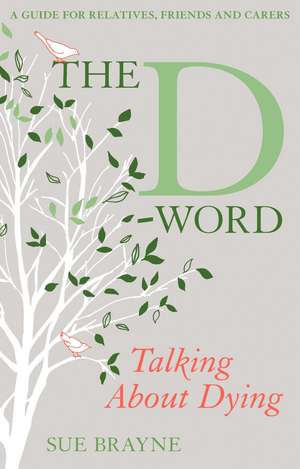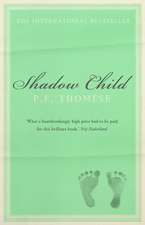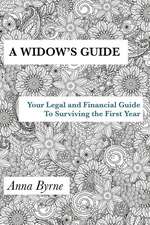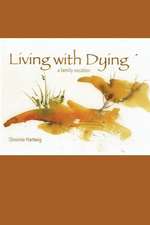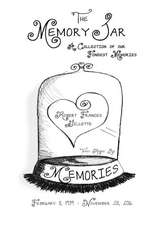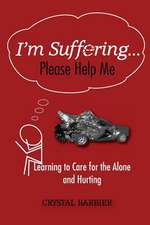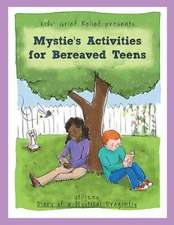The D-Word: Talking about Dying: A Guide for Relatives, Friends and Carers
Autor Sue Brayneen Limba Engleză Paperback – 20 ian 2010
Preț: 62.14 lei
Preț vechi: 100.52 lei
-38% Nou
Puncte Express: 93
Preț estimativ în valută:
11.89€ • 12.46$ • 9.85£
11.89€ • 12.46$ • 9.85£
Carte tipărită la comandă
Livrare economică 08-22 aprilie
Preluare comenzi: 021 569.72.76
Specificații
ISBN-13: 9781441186799
ISBN-10: 1441186794
Pagini: 192
Ilustrații: 20
Dimensiuni: 138 x 216 x 13 mm
Greutate: 0.25 kg
Editura: Bloomsbury Publishing
Colecția Continuum
Locul publicării:London, United Kingdom
ISBN-10: 1441186794
Pagini: 192
Ilustrații: 20
Dimensiuni: 138 x 216 x 13 mm
Greutate: 0.25 kg
Editura: Bloomsbury Publishing
Colecția Continuum
Locul publicării:London, United Kingdom
Caracteristici
Demonstrates and confronts the stigma that is attached to death and dying, and offers a route to regaining the ability to talk openly about death and dying.
Cuprins
Welcome to the D-WordPersonal StoriesStructure A personal NoteSECTION ONE: DENIAL OF THE D-WORDSpiritual ValuesAn Entitlement to LifeThe Effect On the Natural World SECTION TWO: DAYS GONE BYThe Mediaeval Ars MoriendiFrom Home to HospitalThe Media SECTION 3: DYING FROM A MEDICAL PERSPECTIVEThe GP: The First Port of CallThe Intensive Care Anaesthetist: Difficult End-of-Life DecisionsThe Palliative Medicine Consultant: Clear CommunicationThe Palliative Care Clinical Nurse Specialist: Planning the Best Place to DieThe Hospice Nurse: The Importance of ListeningThe Nursing Home Carer: Importance of Acting Normally SECTION 4: FAITH MAY HELP The Bishop: The Easter StoryThe Muslim Chaplain: Testament of FaithThe Rabbi: A Ritual PathThe Buddhist: the Importance of CommunityThe Hindu: Karma and Reincarnation SECTION FIVE: HAVING THE CONVERSATIONBroaching the D-WordWhen Relatives Are in DenialWhen the Dying Person Doesn't Want to KnowWhen There's No ResolutionWhen Children Are Not Allowed to Talk SECTION 6: SUDDEN OR VIOLENT DEATHA Brother's MurderA Car CrashA Sudden Heart AttackA MiscarriageCoping with SuicideSECTION 7: FINDING SUPPORTSpeaking EuphemisticallyNot Everyone Experiences GriefBreaking Bad NewsBreaking Bad news GuidelinesWHAT CAN BE DONE TO TACKLE THE D-WORD?SECTION 8: A PRACTICAL GUIDE TO SUPPORT THE DYINGIntroductionSaying GoodbyeHow to Listen WellLife ReviewsThe Dying ProcessEnd-of-Life ExperiencesTranspersonal End-of-Life ExperiencesFinal Meaning End-of-life ExperiencesDreamsHow to Tell the Difference Between End-of-Life Experience or Drug-Induced Hallucination?What Should I do if my relative or Friend has Dementia?What Should I do if I can't be there at the end?Being There at the EndThe Use of Gentle TouchChoosing the Moment to GoWhat Happens Physically When Someone Dies?When Death HappensWhat You Can Expect to Feel Immediately AfterThings Relatives Might Need to Think AboutStopping Life-Extending TreatmentFamily DynamicsPracticalities to ConsiderAt the BedsideSuggestions for friendsWhat to DoWhat Not to DoLooking BackWhat HelpedWhat Didn't HelpSummaryA FINAL FEW WORDSSOME HELPFUL CONTACTS
Recenzii
'This accessible book describes the experiences of a wide range of individuals (both professionals and the general public) in relation to death and dying, and uses these experiences to helpfully inform and advise those who may be experiencing death and dying for the first time.'
'From the personal to the practical - debunking the myths and the medical jargon about death. The D-Word offers a new language and literacy for death and the dying process in a world disconnected from the meaning and life-giving aspects of the final stage of our journey on earth. This book is an indispensable tool for a clinician, client or family member. The personal stories are deeply moving and inspiring, and interspersed with clear, caring, practical guides on each stage of the death process. It belongs on the shelf of every doctor, nurse, therapist, counsellor and psychologist.'
The D-Word is a very contemporary book addressing many issues of concern to both health professionals as well as the community. It encompasses not only practical approaches to working with and supporting dying people, but also the history of care for dying people, the language used and many experiences of people. I particularly appreciated chapter 4 where the voices of the various faith traditions are able to speak for themselves. And the chapter "having the conversation" is an important one for anyone concerned with care for a dying person.
It is a rare gift that Sue Brayne delivers in her very practical yet compassionate work, The D-Word: Talking about Dying. Her gift of open and honest dialogue about the many aspects of dying - from the medical to the spiritual to the everyday realities - is wrapped in a style that invites participation on a unique level. Sue hand-picks universal emotions from the heavens and brings them gently down to earth. The D-Word is heartfelt, true, and uncomplicated. I highly recommend this for everyone, since death is, as she puts it, "something which conclusively is going to happen to us all".
Dying involves us all. Whether you are a professional carer or interested member of the public this book will speak to you! Full of real-life stories and perspectives from those directly involved with the dying, Sue offers valuable insights and guidance. This much needed addition to the literature should be found in every hospice library, made available to patients and relatives and be required reading for all students of palliative care.
The D-Word: Talking about Dying constitutes a major contribution to our understanding of the realities of dying. It is an inspirational book and will touch the hearts of many but this is not a sentimental book, it will cause you to pause and think. It seeks to open up conversations about death and dying, within families, between patient and doctor, and in the wider society. In my view, this is to be welcomed as we all face death but often we do not talk though our fears and preferences until it is much too late. The book is easy to read and littered with richly evocative stories of dying. It is an excellent book and a valuable asset to all on the way to our common fate.
The D-Word can be seen as a 21st-century update on the themes Elizabeth Ubler-Ross explored in her groundbreaking 1969 book On Death and Dying. Brayne acknowledges spirituality as an inherent human need, which sets her apart from the other authors.
Well written and practical, and made me wonder why no one had produced it before ... would be very useful to healthcare professionals, particularly nurses
[The D-Word] is well organised. It represents a balance of personal experience, wider theory, and persistent engagement with the reader. The text is well laid out and clearly printed.
'From the personal to the practical - debunking the myths and the medical jargon about death. The D-Word offers a new language and literacy for death and the dying process in a world disconnected from the meaning and life-giving aspects of the final stage of our journey on earth. This book is an indispensable tool for a clinician, client or family member. The personal stories are deeply moving and inspiring, and interspersed with clear, caring, practical guides on each stage of the death process. It belongs on the shelf of every doctor, nurse, therapist, counsellor and psychologist.'
The D-Word is a very contemporary book addressing many issues of concern to both health professionals as well as the community. It encompasses not only practical approaches to working with and supporting dying people, but also the history of care for dying people, the language used and many experiences of people. I particularly appreciated chapter 4 where the voices of the various faith traditions are able to speak for themselves. And the chapter "having the conversation" is an important one for anyone concerned with care for a dying person.
It is a rare gift that Sue Brayne delivers in her very practical yet compassionate work, The D-Word: Talking about Dying. Her gift of open and honest dialogue about the many aspects of dying - from the medical to the spiritual to the everyday realities - is wrapped in a style that invites participation on a unique level. Sue hand-picks universal emotions from the heavens and brings them gently down to earth. The D-Word is heartfelt, true, and uncomplicated. I highly recommend this for everyone, since death is, as she puts it, "something which conclusively is going to happen to us all".
Dying involves us all. Whether you are a professional carer or interested member of the public this book will speak to you! Full of real-life stories and perspectives from those directly involved with the dying, Sue offers valuable insights and guidance. This much needed addition to the literature should be found in every hospice library, made available to patients and relatives and be required reading for all students of palliative care.
The D-Word: Talking about Dying constitutes a major contribution to our understanding of the realities of dying. It is an inspirational book and will touch the hearts of many but this is not a sentimental book, it will cause you to pause and think. It seeks to open up conversations about death and dying, within families, between patient and doctor, and in the wider society. In my view, this is to be welcomed as we all face death but often we do not talk though our fears and preferences until it is much too late. The book is easy to read and littered with richly evocative stories of dying. It is an excellent book and a valuable asset to all on the way to our common fate.
The D-Word can be seen as a 21st-century update on the themes Elizabeth Ubler-Ross explored in her groundbreaking 1969 book On Death and Dying. Brayne acknowledges spirituality as an inherent human need, which sets her apart from the other authors.
Well written and practical, and made me wonder why no one had produced it before ... would be very useful to healthcare professionals, particularly nurses
[The D-Word] is well organised. It represents a balance of personal experience, wider theory, and persistent engagement with the reader. The text is well laid out and clearly printed.
